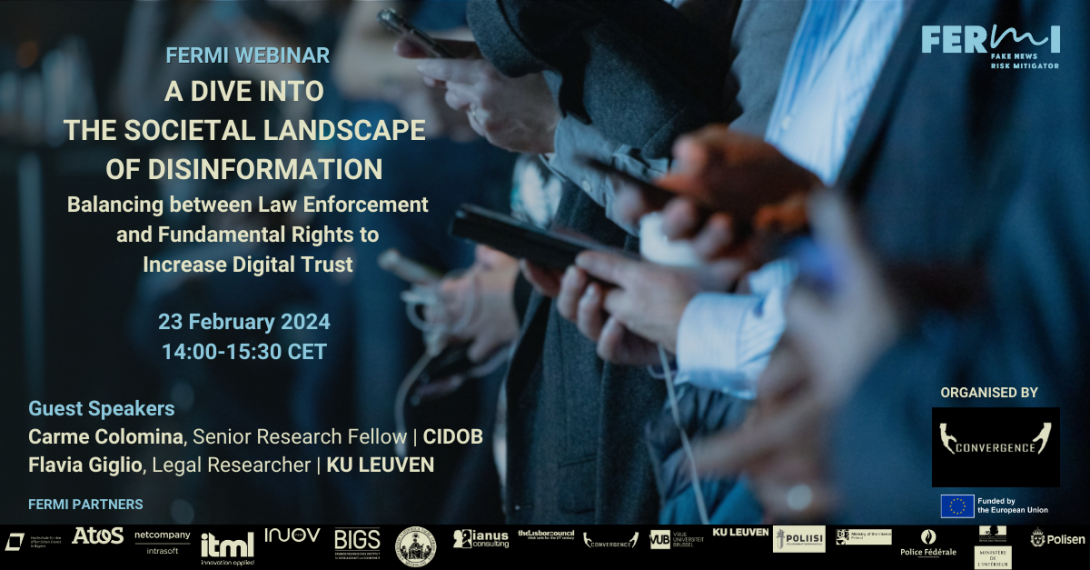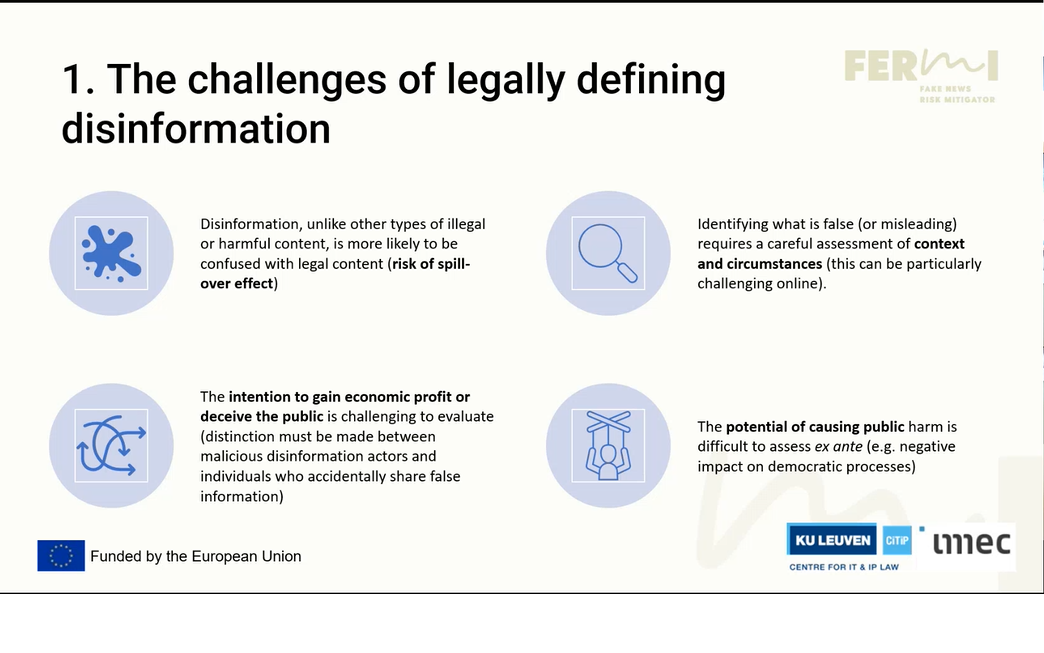
On 23 February 2024, the FERMI consortium partners from Convergence organised and hosted the webinar A dive into the societal landscape of disinformation: Balancing between Law Enforcement and Fundamental Rights to Increase Digital Trust. Speakers included Carme Colomina, a senior research fellow specialised in European Union, disinformation and global politics at CIDOB, Barcelona Centre for International Affairs, as well as visiting professor at the College of Europe in Bruges, and Flavia Giglio, a legal researcher working at the cybersecurity and cybercrime cluster of the KU Leuven Center for IT & IP Law (CiTiP).
The webinar offered an insightful exploration of the complexities of disinformation, highlighting the multifaceted nature of the challenges and their profound impacts on society. The discussion deep-dived into the interplay between security measures and the preservation of civil liberties with the speakers describing the intricate interplay of enforcing laws against disinformation while upholding the fundamental rights that underpin democratic societies.
Unravelling the Complexities of Disinformation
The multifaceted nature of disinformation was analysed, emphasising the lack of consensus on its definition within the European Union and the diverse tactics employed to manipulate information. The speakers underscored the transformative role of digitalisation in reshaping the media landscape and highlighted the imperative need for media literacy and robust journalism in countering disinformation.

Collaboration and Education
A key takeaway from the discussions was the imperative for collaborative efforts between public and private sectors to safeguard democratic processes and societal well-being. The speakers advocated for a holistic approach to enhance media literacy, urging a reevaluation of trust and reliability in information consumption.
Interactive Engagement
The dynamic Q&A session allowed participants to engage directly with the speakers and other participants, posing thought-provoking questions that ranged from the technical nuances of artificial intelligence in detecting disinformation to the ethical considerations of censorship. This interaction enriched the webinar, offering personalised insights and emphasising the collective responsibility to safeguard digital dialogue.
Reflections
Survey results gathered before and after the webinar painted a promising picture: participants' understanding of disinformation and digital trust issues saw marked improvement. This leap in comprehension is a testament to the quality of discourse and the expertise shared during the webinar.
The FERMI webinar presented a compelling narrative on the challenges and opportunities presented by disinformation. It called for a holistic approach, recognising the critical role of education, legal frameworks, and ethical considerations in fostering a resilient information ecosystem. The depth of expertise among the speakers, coupled with their commitment to a fact-based public discourse, provided participants with a comprehensive understanding of the multifaceted impact of disinformation on society.
As we navigate the complexities of the digital age, the insights from the FERMI webinar underscore the importance of collaborative efforts to uphold the integrity of information. It is clear that building digital trust and combatting disinformation requires a concerted effort from all sectors of society. The path to overcoming disinformation lies in our collective efforts to educate, legislate, and collaborate. These insights reaffirm the necessity and significance of the FERMI project.